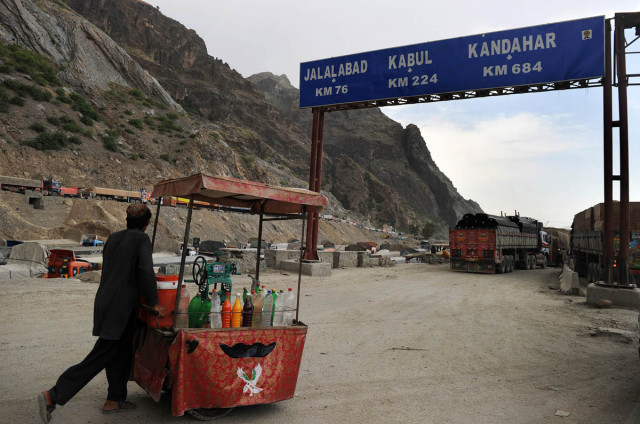Directorate to regulate Afghan transit trade
PTI govt to empower body to handle all ATT affairs from July this year

Pak-Afghan border Torkham. PHOTO: AFP
According to available documents, Prime Minister Imran Khan, while presiding over a meeting recently, decided in principle to fully empower the directorate to deal with all matters related to the Afghan Transit Trade (ATT).
On the PM’s instructions, the Federal Board of Revenue (FBR) is working on fully empowering the directorate general to carry out end-to-end operations of the transit trade.
The move will take place through amendments to the finance bill.
According to sources, the FBR has notified the structure and functioning of the directorate general under Customs General Order No 6.
Apart from the directorate general’s headquarters established at Customs House Karachi, two regional officers are operation in Peshawar and Quetta.
Once empowered, the directorate general will expedite the implementation of the Afghan-Pakistan Transit Trade Agreement 2010.
The regional offices will look after the oil processing, examination of bulk cargoes, inspection and movement.
They will also deal with the re-cancellation of the transit trade, upgrading the MIS functions and referring cases.
According to a report, the misuse of Afghan transit trade still remains the biggest issue that is badly hitting Pakistan’s economy but the government is working on a plan to clear about 90-95% of imports without physical inspection by 2023-24.
The consignments would not be opened for physical examination but would be checked through scanners and there would be no human interaction between the FBR officials and importers for clearing the consignments.
Prime Minister Imran Khan has approved a project costing €250 million to scan all imported containers shipping goods under the Afghan transit trade project.
According to a senior FBR officer, the project was planned under previous government’s tenure.
The project will be completed in three phases by December 2020 and the pilot operation would kick off in April 2020.
Under the project, special scanners would be installed at all crossing points and custom clearing stations used for trade, including Torkham and Chaman border.
In the first phase of the project, three scanners will be installed at South Asia Pakistan Terminal Port, Torkham and Chaman borders.
Subsequently, four scanners at the Karachi Port Terminal, one scanner each at Torkham and Chaman check points and two scanners at Gwadar port will be installed in the second phase of the project by June 2020.
The third phase of the project will be completed by December 2020 under which one scanner will be installed at each crossing point — Ghulam Khan, Kharlachi and Lahore — and two scanners at Sust border.



















COMMENTS
Comments are moderated and generally will be posted if they are on-topic and not abusive.
For more information, please see our Comments FAQ